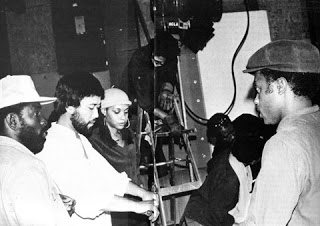Source: Deadline
Throughout the past couple decades, buyouts and mergers of major entertainment corporations have become increasingly common, resulting in many of the world’s biggest media empires growing even larger than they previously were. The early 2010s saw Comcast acquire a majority stake in NBC/Universal, and in the year 2019, the Walt Disney Company completed its purchase of the film studio 20th Century Fox. Then there is WarnerMedia (formerly called Time Warner), the entertainment conglomerate that owns such industry giants as the Warner Brothers movie studio and the Turner television channels (which include the likes of CNN and TNT). In 2018, the entire company was sold to cable giant AT&T, effectively making it one of the most powerful forces in the entertainment industry. One would think that such companies would recognize their limits and be able to stop themselves from becoming too big to fail, but in a world where even the largest of industry giants must find new ways to strengthen their hold on the market these types of mergers will occur. This idea was only further reinforced with the most recent announcement from one of these giants, an announcement to merge with another entertainment company and further increase its media footprint.
On Monday, May 17th, 2021, AT&T released a statement claiming that it had made an agreement with Discovery, the owner of such television stations as the Food Network, HGTV, and TLC, to combine the company with its own WarnerMedia, cementing the documentary focused corporation’s status as merely another component of the conglomerate’s already massive entertainment division. The merger has been described by many as the perfect union of fictional and nonfictional content; under this new agreement, Discovery’s nonfictional programming and WarnerMedia’s fictional intellectual properties would fall under one umbrella, and while a new name has yet to be announced (if there will be any at all), industry analysts expect such a name to more accurately reflect this new mixture of iconic Warner-owned IPs and Discovery-owned programs.
“This agreement unites two entertainment leaders with complementary content strengths and positions the new company to be one of the leading global direct-to-consumer streaming platforms,” AT&T CEO John Staneky claims in the statement released by the company to announce the upcoming merger. “It will support the fantastic growth and international launch of [AT&T owned streaming platform] HBO Max with Discovery’s global footprint and create efficiencies which can be re-invested in producing more great content to give consumers what they want.”
Current Discovery CEO David Zaslav is expected to serve as the driving force of this new entertainment division. Although current WarnerMedia CEO Jason Kilar will remain in his position until the merger is fully completed (an event not expected to occur until mid-2022 at the earliest), Zaslav released a personal statement reflecting his enthusiasm of the upcoming corporate amalgamation. “During my many conversations with [AT&T CEO John Staneky], we always come back to the same simple and powerful strategic principle,” Zaslav claims, “these assets are better and more valuable together. It is super exciting to combine such historic brands, world class journalism and iconic franchises under one roof and unlock so much value and opportunity,”
The upcoming merger is said to be an all-stock transaction, with Discovery receiving a 29% stake in the company while AT&T will acquire the remaining 71%. AT&T will also be given around $43 billion as a result of the purchase, much of it consisting of cash payouts, debt security, and retention of current WarnerMedia debt. In addition, a new Board of Directors is planned to oversee the direction in which this company is taken, one consisting of thirteen members consisting of seven appointed by WarnerMedia (including the Chairperson of the Board) and six appointed by Discovery (with Zaslav serving as one of these six). It is currently unknown exactly how the new acquisition of Discovery content will affect what is already being produced by WarnerMedia, but Zaslav is hopeful that having both media families under this new company’s oversight will prove to be of great benefit.
“With a library of cherished IP, dynamite management teams and global expertise in every market in the world, we believe everyone wins,” Zaslav claims in his statement, “consumers with more diverse choices, talent and storytellers with more resources and compelling pathways to larger audiences, and shareholders with a globally scaled growth company committed to a strong balance sheet that is better positioned to compete with the world’s largest streamers.”
Still, not everyone is as excited about the prospects of WarnerMedia merging with Discovery as Zaslav is. With this being yet another in a long line of major corporate amalgamations, the number of individual companies that possess a significant stake in the entertainment industry is getting smaller and smaller, making it harder to independent businesses to compete without having to align themselves with a larger brand name. Many analysts have expressed their concern that the reduced number of economic competitors is steering the industry as a whole closer to full monopolization, and unless there is direct intervention from the federal government (of which there has been no announcement as of yet), hardly anything stands in the way of the media landscape moving further in this direction.
Despite this however, the current state of the global economy has only further reinforced this mentality and the need for large corporations to get larger, meaning that WarnerMedia and Discovering coming together will hardly be the last of such major corporate mergers.




